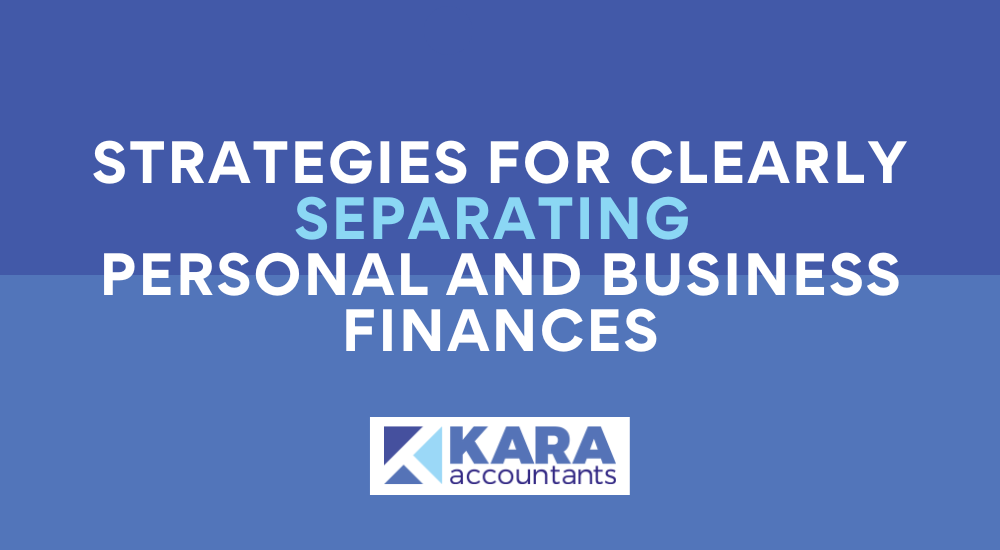
Strategies for Clearly Separating Personal and Business Finances
When you embark on a business venture, it’s essential to establish a clear divide between your personal and business finances. Separating these two aspects not only simplifies accounting and tax obligations but also protects your personal assets in case of any legal or financial issues. In this blog post, we will discuss effective strategies to help you maintain a clear distinction between your personal and business finances.
Establish Separate Bank Accounts:
The first step in separating personal and business finances is to open separate bank accounts. Having dedicated accounts for personal and business transactions will prevent any commingling of funds. This segregation makes it easier to track income, expenses, and cash flow for both entities. It’s advisable to choose a reputable bank that offers business-specific accounts with features tailored to meet your business needs.
Obtain a Business Credit Card:
Using a business credit card exclusively for your business expenses is an excellent way to maintain financial separation. It simplifies expense tracking, enables accurate record-keeping, and ensures that personal and business transactions remain distinct. Additionally, having a separate credit card allows you to build a credit history and access business-specific perks and rewards.
Implement an Accounting System:
Adopting a reliable accounting system is crucial for effectively separating personal and business finances. Numerous software options, such as QuickBooks, FreshBooks, or Xero, provide user-friendly interfaces and features specifically designed for business accounting. These tools allow you to categorise income, expenses, and track cash flow for accurate financial reporting. Regularly reviewing and reconciling your accounts will help you gain insights into your business’s financial health while maintaining a clear distinction from personal finances.
Maintain Proper Documentation:
Proper documentation is essential to support the separation of personal and business finances. Keep meticulous records of all financial transactions, including receipts, invoices, bank statements, and tax documents. By doing so, you can easily substantiate business expenses and demonstrate adherence to legal and tax regulations. Consistent and organised record-keeping also facilitates efficient financial reporting and simplifies tax preparation processes.
Pay Yourself a Salary:
To further differentiate your personal and business finances, establish a system where you pay yourself a regular salary from your business earnings. This practice helps you maintain a clear understanding of the money flowing from your business to your personal accounts. By setting a salary, you establish a distinct line between personal withdrawals and business profits, minimising any potential confusion or mix-up.
Seek Professional Advice:
If you’re unsure about how to navigate the complexities of separating personal and business finances, it’s wise to seek guidance from professionals such as accountants or financial advisors. They can provide expert advice tailored to your specific circumstances, helping you understand legal requirements, maximise tax deductions, and ensure compliance. Professional assistance not only ensures you stay on top of financial obligations but also provides peace of mind as your business grows.

This Post Has 0 Comments